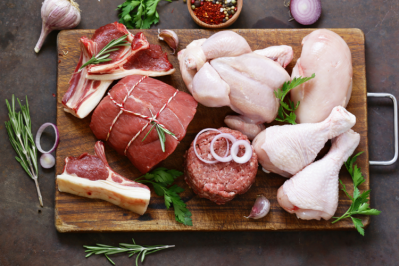Guest article
The new Agricultural Revolution needs you: Good Food Institute

Since 1970, the human population has more than doubled, yet Ehrlich’s dystopia has not come to pass.
The reality of 2019 is very different than the one prophesised 50 years ago. As thought leaders like Steven Pinker and Hans Rosling have thoroughly documented, the percentage of people living in abject poverty is vastly lower today than ever before. The percentage of people starving is much lower. The global average lifespan is much higher.
This significant and stunning progress didn’t simply happen. The trends and threats pointed out in the 1960s and 70s didn’t just fade away on their own. Many scientists, engineers, doctors, and others dedicated decades of their lives to the advances that have made this decade the best time ever for humanity.
New threats: AMR and climate change
But the world we’re living in today presents us with new challenges, and some of them border on the existential.
For example, we see and feel the impacts of climate change on a daily basis. Current projections show that without significant adjustments things will get much worse, with even bigger and more devastating floods, fires, famines.
Believe it or not, global warming might not be the scariest threat we face. Antimicrobial-resistant infections already kill 50,000 people annually in the US and Europe, but we ain’t seen nothing yet. The UK government found that the threat to the human race from deadly new drug-resistant disease strains is ‘more certain’ than that from climate change.
Dr. Margaret Chan, former Director-General of the World Health Organization, has warned that “a post-antibiotic era means, in effect, an end to modern medicine as we know it. Things as common as strep throat or a child’s scratched knee could once again kill". Without significant change, new superbugs could kill 10 million people every year.
The role of industrial agriculture
What do the climate crisis and antibiotic resistance have in common, other than being existential threats to modern societies?
They are both being driven in large part by industrial animal agriculture.
This is not obvious, of course. We point to SUVs and coal plants as global warming’s villains. Demanding, irrational patients are painted as the bad guys for antibiotic overuse.
But global meat production causes more climate change than the emissions from every single plane, train, and automobile on the planet. And the vast majority of antibiotics don’t even go to people – most of these vital drugs are fed to animals being raised for meat.
Clearly, we need a new Agricultural Revolution.
Diversifying diets part of the solution
Here’s the most exciting thing: we can already see the seeds of this necessary change all around us. We already know how to give people all the meat they want without food waste, oceans of manure, gigatons of carbon emissions, or the next pandemic.
You can find the first fruits of this revolution in the meat aisle of the local Safeway and on the menus at the Burger King down the road. New companies like Beyond Meat and Impossible Foods have made it very clear that offering people meat made directly from plants is a winning strategy.
Impossible Foods has raised nearly a billion dollars in funding, and Beyond Meat’s IPO was the most successful in well over a decade. Both companies are working around the clock to keep up with demand.
Although plant-based meat is currently less than one percent of the global meat market, the trend is clear. A new report by international consultancy AT Kearney projects that 60% of the meat we eat will either be plant-based or cultured by 2040.
We won’t go from zero to 60 with just Beyond Meat and Impossible Foods. Fortunately, the food establishment has seen the signs and is getting on board too.
Nestlé, the largest food company in the world, is going big into plant-based meat. Their Incredible Burger is now in every German McDonald’s – and that is just a start. In the United States, Kraft Heinz and Kellogg’s are upping their plant-based meat investments as well.
Even more telling are the moves by the world’s largest meat companies. JBS, Tyson, Cargill, Maple Leaf, Bell Foods – just about every major meat company in the world is taking steps to replace the animal as the source of meat.
They are quite explicit, too. Last year, Tyson’s CEO Tom Hayes was on the cover of Bloomberg Businessweek declaring: “If we can grow the meat without the animal, why wouldn’t we?”
Of course, there is much work to be done to transform a trillion-dollar industry. We still need to do everything from figuring out the best crop breeds for plant-based meat and building new supply chains to developing cost-effective growth media and perfecting plant-protein processing.
The threats we face today won’t solve themselves. We need all hands on deck: entrepreneurs, economists, business analysts, venture capitalists, systems engineers, cell biologists, and everyone in between.
The challenges we face are great, but the opportunity is equally enormous. Rarely does a generation have such a clear opportunity to do well by doing good.
Liz Specht, Ph.D. is the Associate Director of Science and Technology for The Good Food Institute, a global nonprofit that works to promote a 'sustainable, healthy, and just' food system.
















